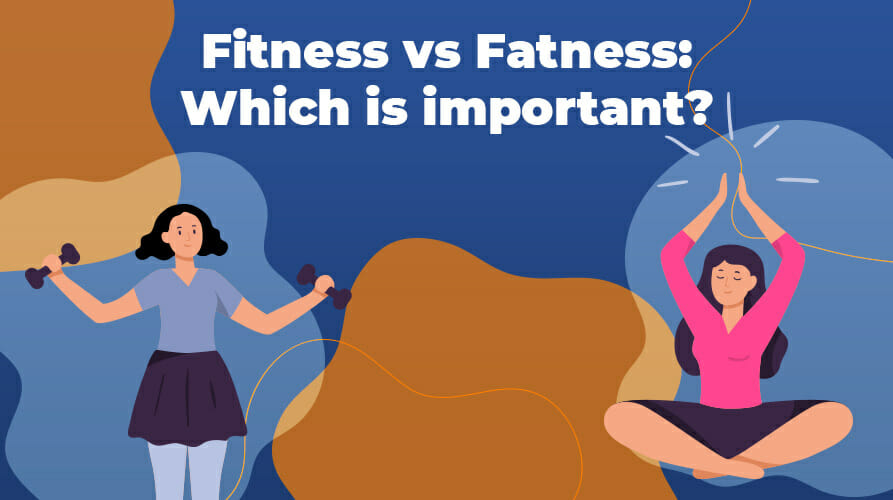Fitness vs Fatness: Which is important? There is a longstanding debate between maintaining a healthy weight and losing weight. Is workout more important than eating and keeping well, what do the experts say?
How fitness and fatness are different?
Firstly, you need to understand that being fit and being obese are two separate concepts. The former considers how well your heart and other body parts function and provide oxygen to your muscles. White the second is a measure of your Body Mass Index (BMI).
BMI is a measure of the body’s height and weight. It can tell you whether a person is underweight or overweight. To calculate it, divide the body weight in kg by the square of the height in meters (m2).
If you are 5’7 tall and weigh 75 kg, then your BMI is 25.8. The categories say:
Underweight- <18.5
Normal weight- 18.5-24.9
Overweight- 25-29.9
Obese- 30 or more
If you are outside your BMI range, then there is a lot of thinking to do.
Being overweight does not mean you are naturally unfit. Some fat people can run miles and then there are slim ones who can barely walk. An individual’s fitness level depends on his muscular abilities.
More weight comes with more risks
1. For someone who is overweight, the chances of being fit are very low. Extra pounds can make it harder to move, exercise, or do any other physical activity. Heavier people require more oxygen to exercise than a normal person.
2. Obesity can increase the likelihood of various conditions such as diabetes, high blood pressure, Polycystic Ovary Syndrome (PCOS), fatty liver, and more serious issues.
3. Studies have found that people can lower their risk of heart disease just by eating right and maintaining a healthy weight. Rather than doing vigorous workouts to drop kg.
Thinner doesn’t mean healthier
Even if you are slim and lean, it doesn’t mean you are in better shape. You may have achieved your weight loss goals but at what cost? Experts say that losing kg should mean a balanced, wholesome diet and not depleting it for fewer calories. A healthy diet includes fruits, vegetables, protein-rich food, nuts, Omega-3 fatty acids, and good fats. These offer invaluable advantages to your whole body.
Maintaining a healthy weight or losing weight?
The primary takeaway of this write-up is that you don’t need to get rid of so many pounds to stay healthy. Maintaining a healthy weight can be done by adopting certain practices and altering some habits. We have made a list of ways for maintaining a healthy weight.
Ways to maintain weight
1. Never skip breakfast. It is considered the most important meal of the day. As the name suggests, it breaks your overnight fast and boosts your energy levels throughout the day. Fuel your stomach with healthy options such as milk, bananas, nuts, fruits, oats, eggs, etc.
2. One of the most important weight maintenance tips is to incorporate a lot of proteins into your diet. Proteins usually promote the feeling of fullness and can help lower your appetite. Also, our body needs to break down protein for energy purposes. More protein means more energy produced by our body. Include eggs, legumes, cottage cheese, nuts, etc.
3. Exercising is essential even when you don’t want to lose weight. It’s always good to burn some extra calories. Plus, a workout increases metabolism, strengthens muscles, boosts energy, and keeps various illnesses at bay. Any physical activity like jumping, jogging, lifting weights, etc can help in maintaining a healthy weight.
4. Lastly, consistency is the key. Instead of going back to old eating patterns, you can adopt mindful eating. Have smaller meals for maintaining a healthy weight. But that does not mean punishing your inner appetite. Eat that burger from your favorite joint. Make sure you eat everything in moderation.
Be consistent with your efforts. Exercise regularly, get enough sleep, eat right, and make sustainable changes to your lifestyle.
